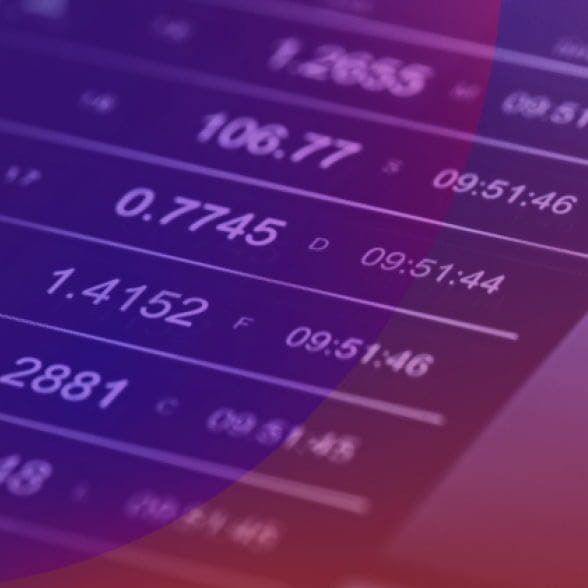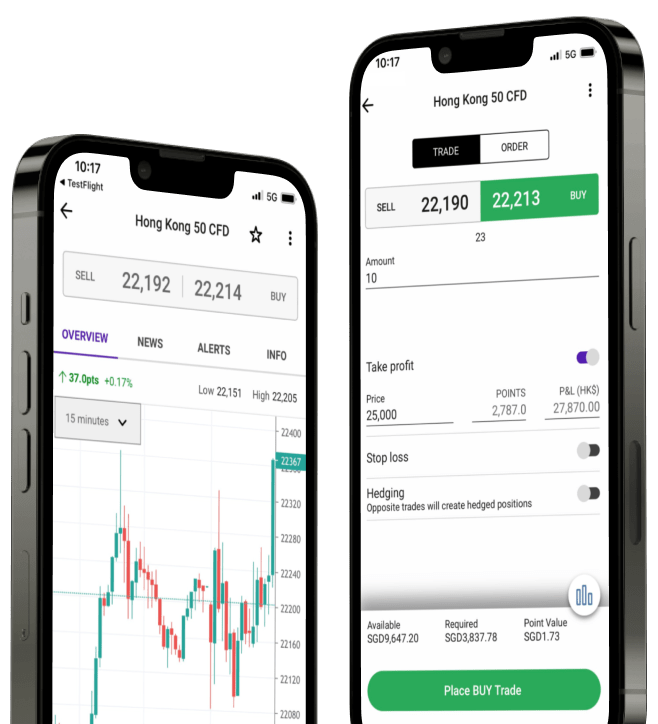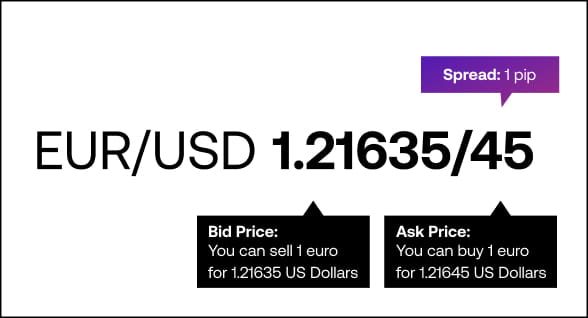
Transparent pricing assured
Where we source our pricing
City Index sources prices for our CFD trading and spot FX markets from a range of sources, including:
- Applicable primary exchanges
- Alternative liquidity providers
We also utilise pricing sourced from our parent company, StoneX (Nasdaq: SNEX), a multinational payments and global securities specialist. These proprietary prices are not available through any other brokerage, meaning we can provide our traders with competitive pricing and vast liquidity.
For OTC (over-the-counter) assets such as FX markets, we source pricing from a number of Tier 1 financial institutions and Electronic Communications Networks (ECNs). This enables us to tap into deep liquidity from around the world, including financial centres such as New York and London. We have access to over 10 different sources of liquidity to help secure our clients the best pricing and liquidity possible.
The pricing for our markets is continuously monitored and updated based on current liquidity levels during the trading hours for each individual market. However, please note that some markets will undergo periods of illiquidity or are generally illiquid in their nature.

Fixed spreads

Variable spreads

Capped variable spreads
Safeguarding client funds

How our markets are priced
City Index acts as a market-maker for all 6,000+ of the markets we offer. We use various methodologies to price each market depending on each individual market and asset class.
The pricing for each market is derived from a number of top-tier liquidity sources, all delivered to you at the best possible price with minimal latency.
How our pricing compares to other brokers
As a global provider of CFD trading, we can provide access to deep pools of liquidity from a number of top-tier financial institutions around the world. This enables us to provide you with the tightest spreads possible across all of our 6,000+ markets.
Our parent company StoneX Group is one of the largest retail and institutional trading providers in the world, enabling us to leverage their global markets ecosystem and execution services to give our clients an industry-leading CFD trading service.
Hedging client positions
Whether clients are in winning or losing trades, City Index makes money through the spread, meaning we do not directly profit from any potential wins or losses.
In most cases, clients’ positions will often balance each other out, with many traders opting to buy a market at a certain price while others opt to sell the same market at that price – known as internalisation.
Where certain markets are experiencing an obvious upturn or downturn in direction, we may have periods when many traders are opening positions in the same direction. When this occurs, we hedge these positions in order to manage company funds and mitigate risk. As an example, if clients are mainly shorting Wall St, we may then hedge these positions by opening positions in the Dow Jones futures market.

Open a City Index demo account and start practising trading risk-free today.
- $20,000 in virtual funds
- Full access to City Index’s award-winning platforms and apps
- 12-week free trial










